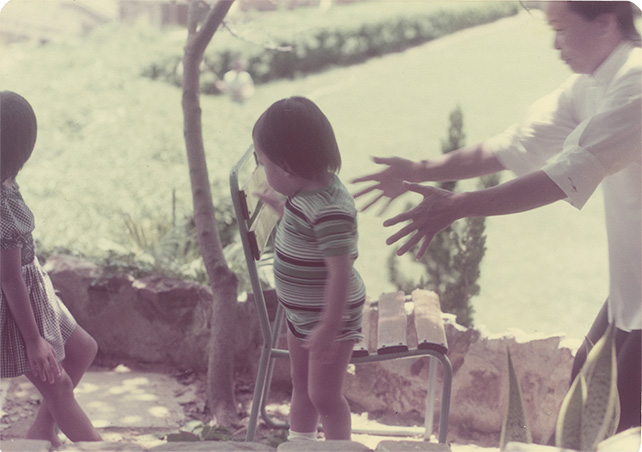
At the end of the 19th century, thanks to the silk trade, numerous women in Southern China became financially independent. Many would wear their hair in a long braid to symbolise their autonomy until their wedding. As Imperial China began to crumble and instability spread, some women took the initiative of adopting independence permanently as Comb Sisters. The Comb Up ceremony involved bathing with mulberry leaves as a fellow Sister braided their hair. They took a vow of chastity, declaring themselves free of obligations towards their parents, and would henceforth wear their hair in a long braid and dress in a light-coloured tunic and dark trousers.
Choosing to live a life independent of men was not without its drawbacks. Comb Sisters were not allowed to return home to die in their old age, so many sisterhood homes sprang up where they looked after each other, often considered sisters for life.
After the fall of the Empire in the early 20th century, the silk trade was in great decline and most of the Comb Sisters were out of work. Many traveled across Southeast Asia to work as nannies and domestic help.
This project is a love letter to my nanny, 87-year old Mak, who worked for my family for nearly 40 years. Denied opportunities due to her gender, she became the main caregiver to her siblings at the age of 8. In her early 20s, not wanting to be forced into an arranged marriage, she “combed up” and left for Hong Kong.
Venue: Esplanade Tunnel
When: 5 Nov 2020 - 10 Jan 2021,
By: Esplanade







